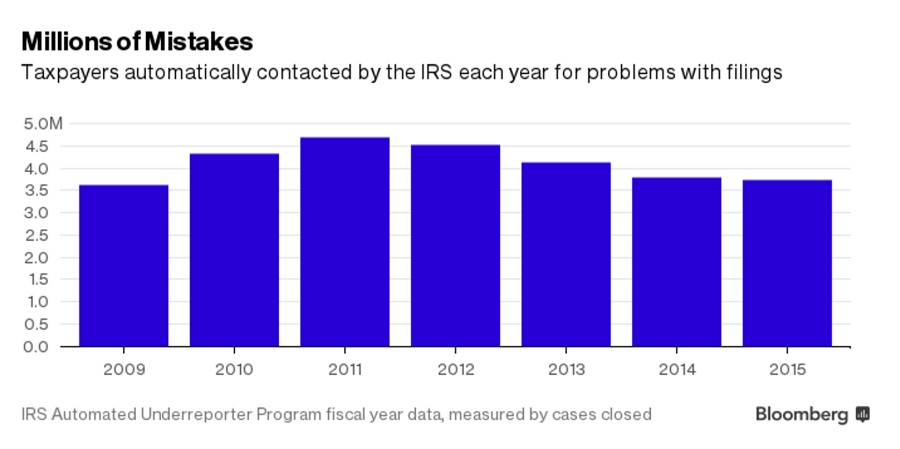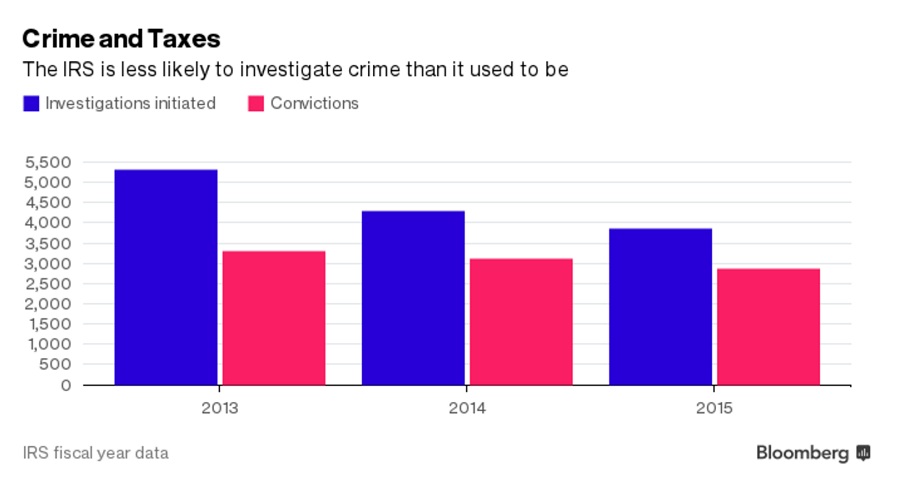
Uh-oh. You messed something up on your tax return. What now?
Audits alone found an additional $25 billion in taxes owed last year, half of that from individual returns. Budget cuts at the Internal Revenue Service have made it harder for the agency to spot mistakes and evasions, but worst-case scenarios include a financial penalty and a prison term. Correcting the return yourself could spare you some anxiety and paperwork if the IRS should eventually notice.
The IRS collected about 2.6 billion documents last year, including W-2 and 1099 forms and other filings. These can reveal a lot about taxpayers' financial lives. IRS computers take all this information and compare it to filed tax returns. Did you forget to report some freelance income? Is there a typo in the amount of student loan interest you claimed you paid? When the computers spot these discrepancies, they automatically recalculate your return and send you a bill.
Advertisement
That happens a lot.
The IRS last year assessed $6.3 billion more in taxes owed as a result of under-reporting. Another automated program looks for taxpayers who should have filed returns but didn't. The agency dealt with 614,000 such cases last year and assessed that $2.7 billion in taxes was owed.
Generally, taxpayers hit with these assessments can make the IRS go away simply by paying the bill. No need to talk to an agent or, in most cases, even hire an accountant.
All this is on top of the audits. In an audit, the IRS combs through a taxpayer's finances looking for underreported income and missing tax payments. It's a rare honor. Last year, out of 147 million individual tax returns, IRS agents examined 1.2 million, or 0.8%. The majority of these were handled through the mail, with IRS field agents conducting 22% of audits last year.
What triggers an audit? Income is a factor.
The wealthy have been audited more frequently in recent years. More than a third of those earning at least $10 million were audited last year, compared to one in 10 in 2008.
While some audits are random, the IRS tends to target more complex returns containing unusual income or unusual deductions. Owners of businesses, rental properties and farms are frequently audited, said Michael Karu of the accounting firm Levine, Jacobs & Co. In those cases, the IRS figures "there is more probability of someone manipulating the numbers," he said.
Overall, the IRS did the fewest audits in a decade last year.
IRS Commissioner John Koskinen complained about budget cuts, imposed by Congress over the last several years, in a speech last month. "The government is forgoing more than $5 billion a year in enforcement revenue, just to achieve budget savings of a few hundred million dollars," he said, adding that weaker enforcement undermines taxpayers' belief "in the essential fairness of the system."
If taxpayers lie to agents, or otherwise cross the line, they can be tried. About 80% of those convicted in IRS cases draw a prison sentence. But the IRS rarely threatens a taxpayer with jail time. Just 3,853 people faced IRS criminal investigations last year, and only 1,629 were purely tax investigations. The rest were classified as financial crimes, including drug-related probes.
It's a hassle for the agency to prosecute. Even a taxpayer who commits an egregious mistake may be able to avoid an investigation by coming clean and pulling out a checkbook.
"The real bottom line," said Mr. Karu, the accountant, "is they just want the money."










